Revealed: the household chores that cause most arguments
Home-related issues that make tensions run high

Creative Cat Studio / Shutterstock
Household chores are a pain, and never ending. As soon as the laundry bin is finally empty, someone in the house is throwing their dirty clothes back in ready for the next washing load. And it's not just chores that are frustrating when living with others. Remote control hoggers, thermostat sneakers and light-on leavers are all culprits that cause arguments with those who like to run things in a more ship-shape fashion.
We've rounded up the most common sources of household squabbles and ways to overcome them in order to give household chore wars a full clean sweep from the home.
Read on to see how many you can tick off in your home...
Decorating dilemmas

roselyn tirado / Unsplash
Differing decorating tastes and choices can be a frequent base of arguments between couples. Colour palettes, budgets and even DIY mistakes can lead to arguments.
Interior expert Michael Rolland at The Paint Shed teamed up with relationship expert Clarissa Bloom to offer top tips on how to reach a compromise. First, remember that decorating can be stressful so be patient. Try to work out if there is a way to meet in the middle such as choosing a colour shade between your choices. Create personal spaces for each other such as a vanity area, reading nook or gaming desk. Finally, try to make it fun.
Clutter hoarding
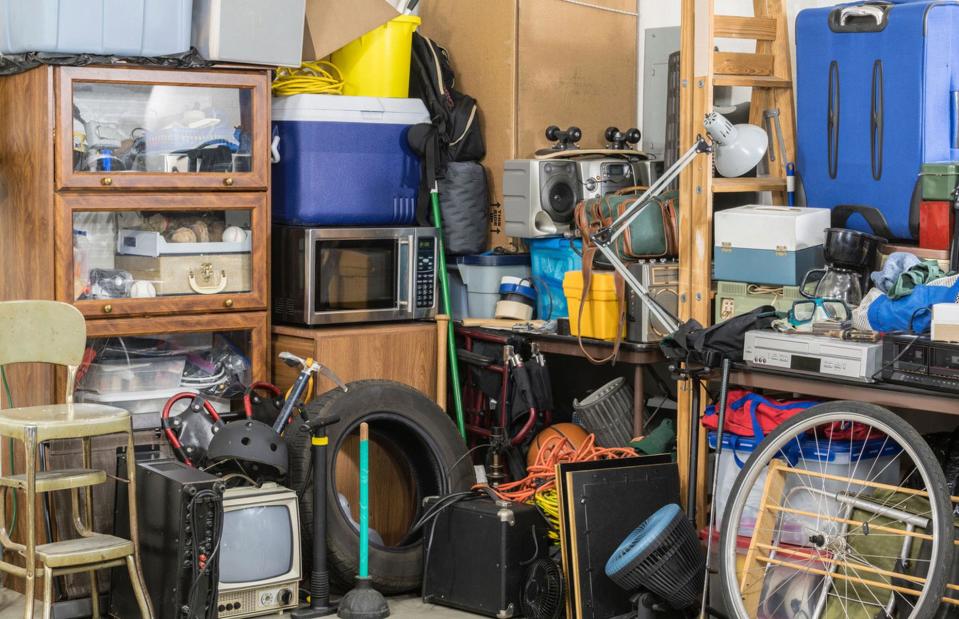
trekandshoot / Shutterstock
A survey commissioned by Vintage Cash Cow revealed that 31% of UK adults argue over clutter around the home. And 35% of respondents believe a messy home negatively impacts their mental health and overall mood and 44% of respondents admitted to hoarding items they don't need.
So before you put that additional spare tyre in the garage or phone cable in the junk drawer alongside five others – stop! Think about if you really need it. Perhaps it's time to declutter your home to help enhance your mental health and bring balance back to your relationships.
Duvet wars
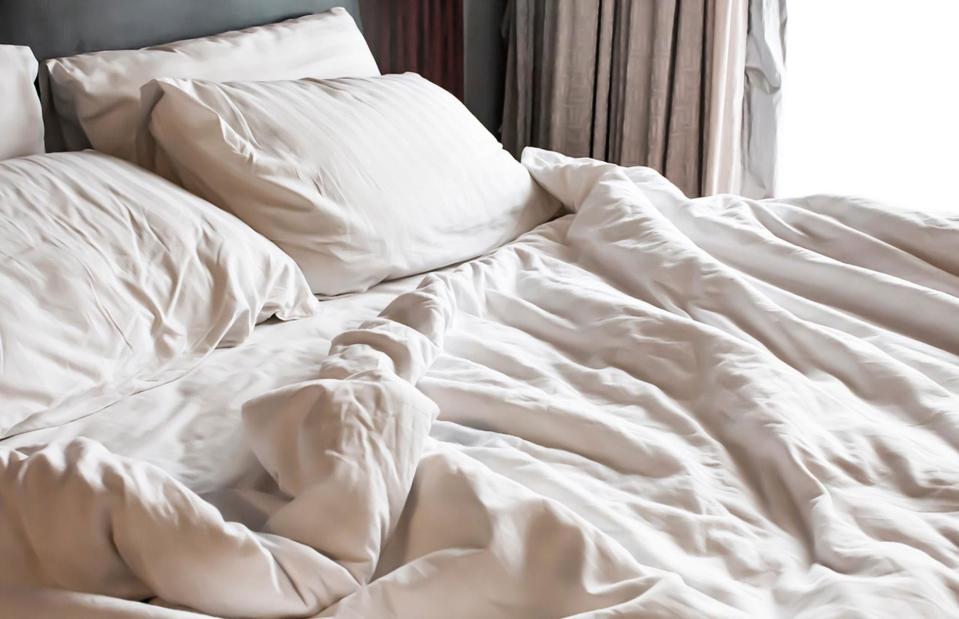
Adisorn Sukhamwang / Shutterstock
Stealing covers have been revealed as the number one cause of arguments between couples in bed, according to a survey from Sleepy People. Results concluded that 61% of couples row in bed over quilt-hogging.
Sleep Expert, Sally Bonser said: "Sharing the bed with your partner can be tricky if you both have different sleep routines and preferences. If you're experiencing trouble, a simple change can make all the difference. Over half of Brits struggle with quilt hogging, so upgrading to a bigger duvet is an easy way to eliminate this issue."
Leaving belongings around
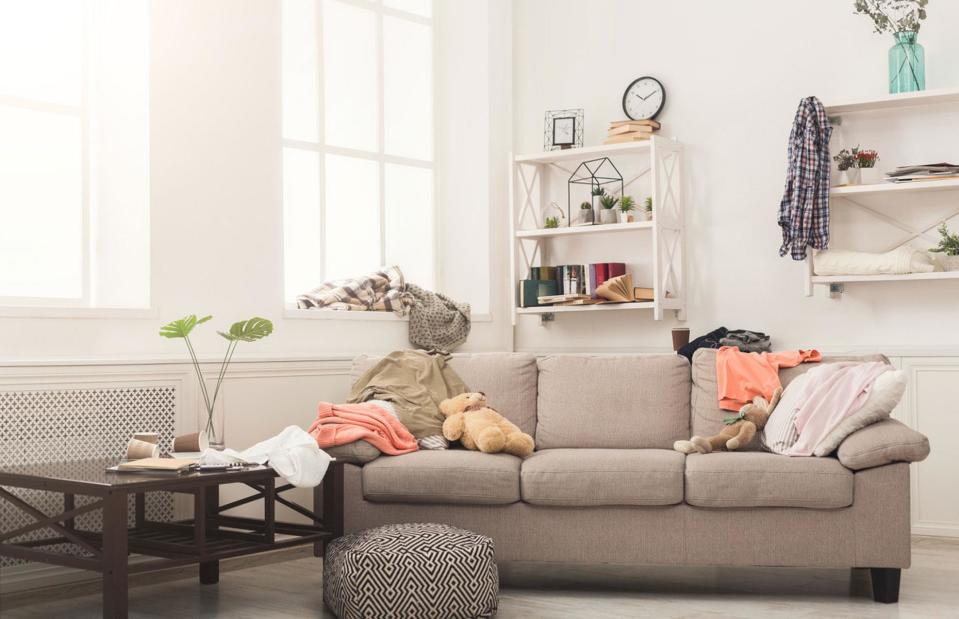
Prostock-studio / Shutterstock
Hammonds has concluded from a UK national survey that general mess and untidiness cause more arguments than bills and shared finances.
Mairead Molloy, Relationship expert and Global Director at Berkeley International says: "Communication is key to not having an argument in the first place. Couples often get into argument cycles where they are always arguing about the same thing. Try to stay calm. Don't interrupt each other and try to actively listen. Investing in ample storage will make sure you have plenty of space to tidy things away."
Pets on furniture
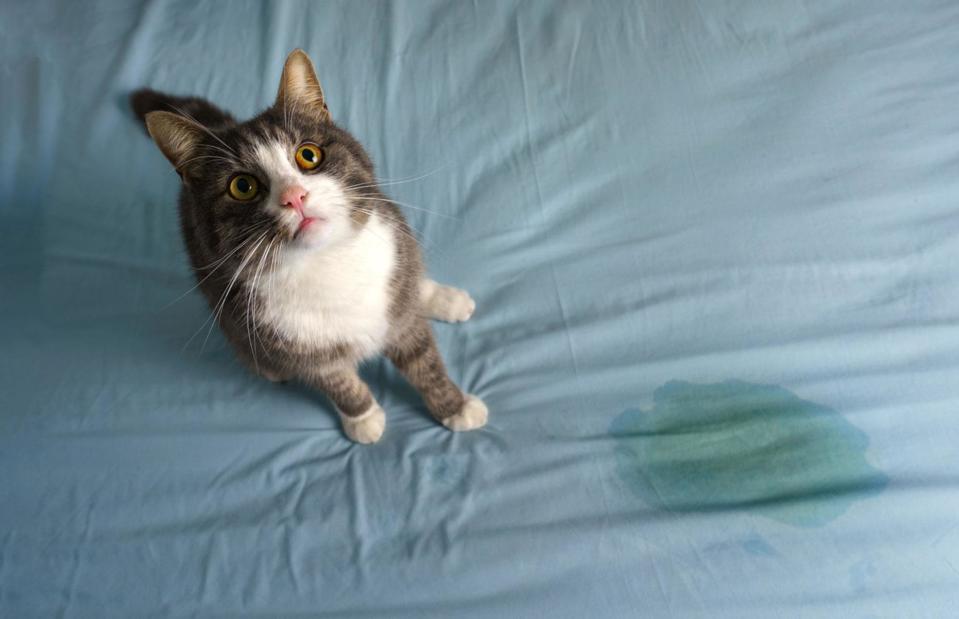
Creative Cat Studio / Shutterstock
According to the survey commissioned by Sleepy People disagreements are often caused in the bedroom by having pets in bed.
Sally Bonser, Sleepy People Sleep Expert, advises: "To avoid falling out with your partner about sharing the bed with your pet, it's also worth creating a separate sleeping area for your cat or dog....so they can give you some space when needed." The happy compromise is to let them stay in the bedroom, just not on the bed.
Loading the dishwasher 'wrong'
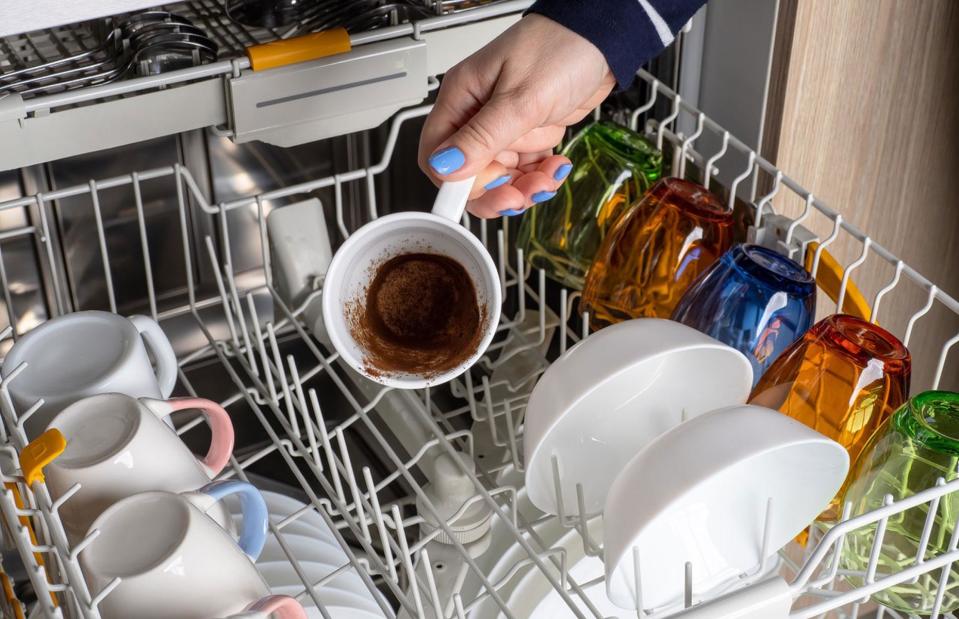
Oxanaso / Shutterstock
If the subject of household arguments came up at a dinner party, our bet is the dishwasher debate would be the first issue at the table. Dishwasher loading loathes are so common that, according to The Sunday Times, the race is on between dishwasher manufacturers to come up with a design solution to dissolve tempers around 'dishwasher etiquette'.
Here are some tips on how to load a dishwasher effectively from the dishwasher detergent manufacturer Finish:
Remove excess food from plates, there is no need to pre-rinse dishes.
Overloading will prevent water and detergent flow and so items will not clean as well.
Place glasses and mugs on top and upside down.
Load utensils except knives handle down.
Load stainless steel and glass pots and pans at the bottom, towards the back and sides so they don't interfere with water flow.
Keep plastics on top to prevent melting.
What to keep in the fridge
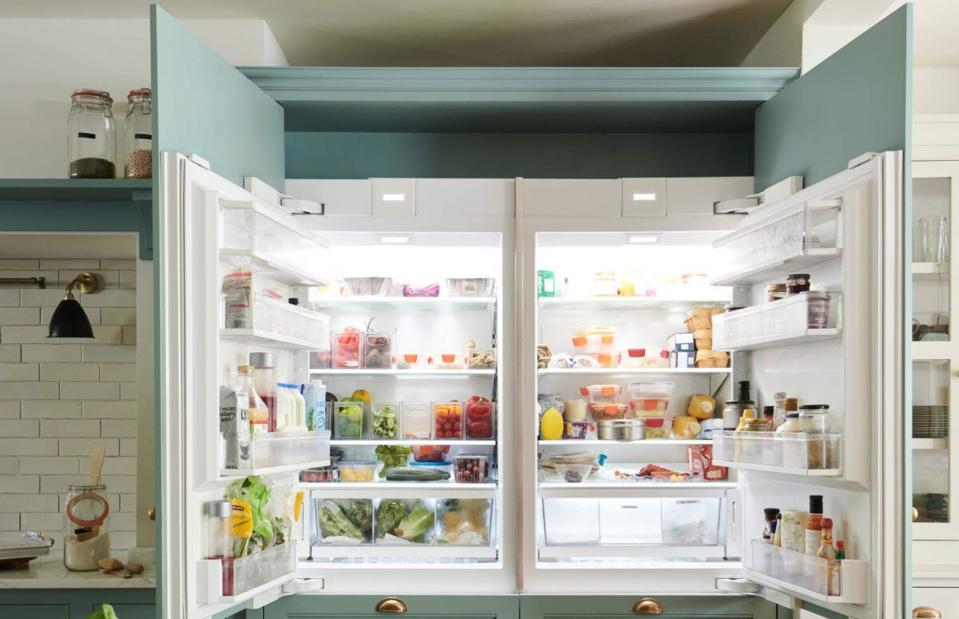
DeVoL
From the first electronic ice-boxes at the start of the 20th century to energy-efficient smart fridges of today that suggest what to have for dinner, the fridge is a wonderful kitchen appliance. However, what should be stored in the refrigerator can often cause problems
The most common foods people argue about are bananas, ketchup, butter, eggs and chocolate. Do you agree?
Not emptying the bin
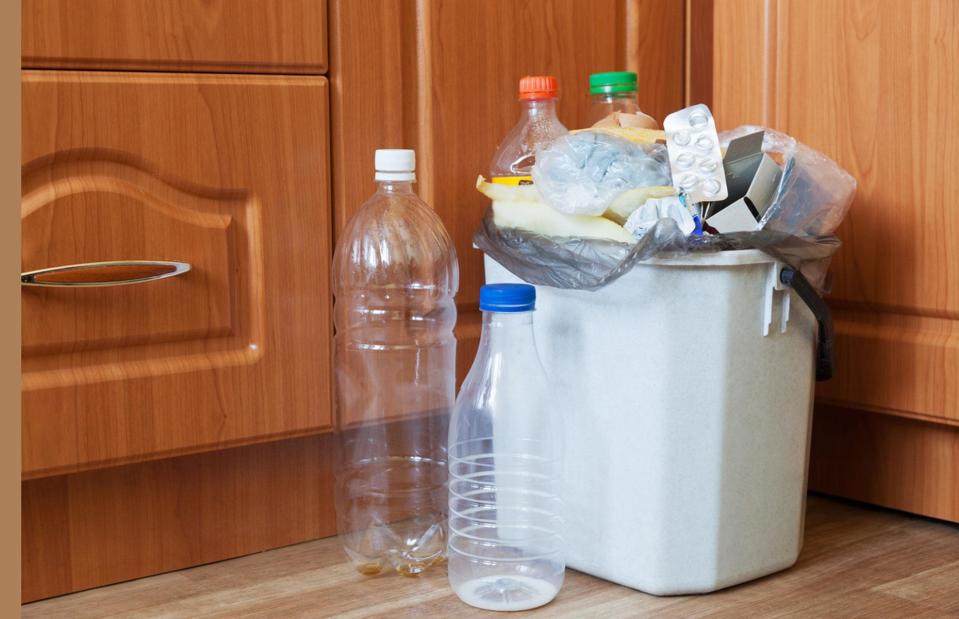
art-siberia / Shutterstock
Taking out the rubbish is a bone of contention in many households. It's an unpleasant task that should be shared amongst the household but alas, one member usually continuously draws the short straw.
Some people believe it's a 'masculine' role, perhaps due to weight and ick factor. However, if it's causing arguments the least fun job in the house should be shared between house occupants to make life easier. "This is the most stereotypical fight to come up in relationships." Clinical psychologist, Rudi Rahbar, Psy.D. told Women's Health. "Sit down and have a calm conversation about why it's important, and be sure to include what other house chores you are taking on."
Not knowing how to recycle

the blowup / Unsplash
We live in a world where most of us are trying to do our bit to help the planet. So when someone throws a can or cereal box into the wrong bin out of ignorance or laziness, more conscious family members may strongly object.
To encourage recycling at home, have more dedicated bins around the home in easy-to-reach places. Reuse products where possible and make sure others know why recycling is important.
Not changing an empty toilet roll
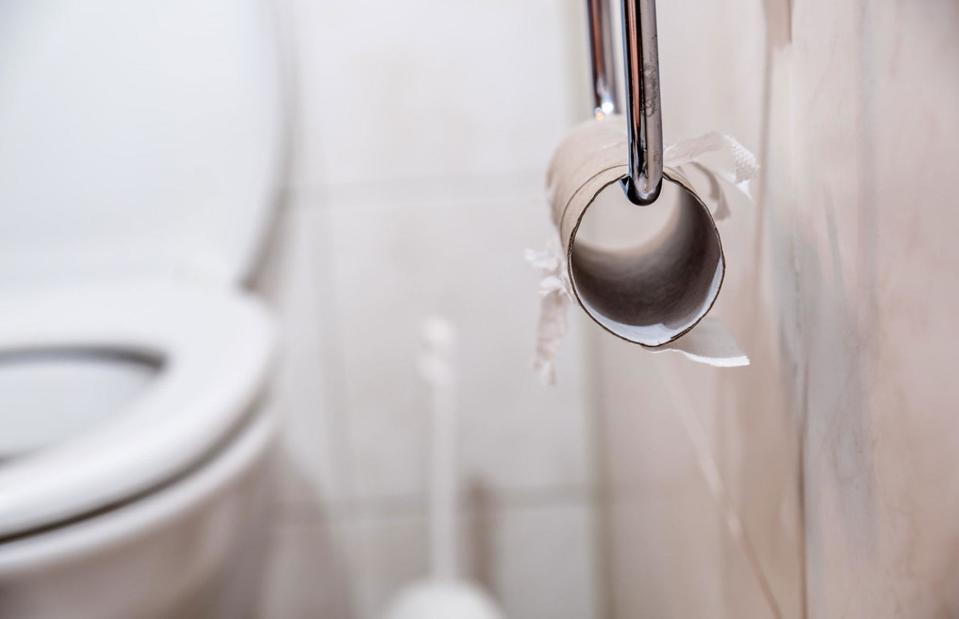
Lukassek / Shutterstock
Toilet paper etiquette is a big topic of bust-ups in households it seems. Firstly there is the 'over or under' debate. Should toilet paper hang over or under the roll? This isn't 'toilet humour' folks – personality traits tend to lead users one way or the other. According to Steam Shower Store, a preference for 'over' means that a person has more of a "take-charge attitude". Preference for 'under' means the user is more submissive.
It is a fact that toilet paper hung 'over' is more hygienic so perhaps that should stand. And don't even get us started on those who forget to refill the toilet paper holder when it runs out on their bathroom break – that is just plain rude!
Leaving the toilet seat up

ShutterPNPhotography / Shutterstock
According to research by Plumbworld, 81% of respondents think you should put the toilet seat down after going to the bathroom, while the other 19% disagree. Oh dear, that must lead to arguments.
A study by Dr. Mehael Fennelly at the University of Cork in 2019 found that flushing the toilet with the lid down reduces the number of visible and smaller droplets of toilet plume by between 30% and 60%. These plumes carry concentrated amounts of bacteria. Other reasons to keep the lid down while and after flushing are that is safer for pets and children and it's simply (in our opinion) good manners. And always wash your hands after touching a toilet seat.
Hogging the TV remote control

Marc Bruxelle / Shutterstock
Research conducted by London Business School concluded that the main gender culprit for hogging the TV remote control was men, regardless of whether they are planning to change the channel. Men it would appear are also usually guilty of channel grazing too.
So, how do you make movie night a fair viewing affair? With so many channels and streaming platforms to choose from it's no wonder TV wars are common in most households. We suggest implementing a rota system and sticking to it.
Thermo-spats
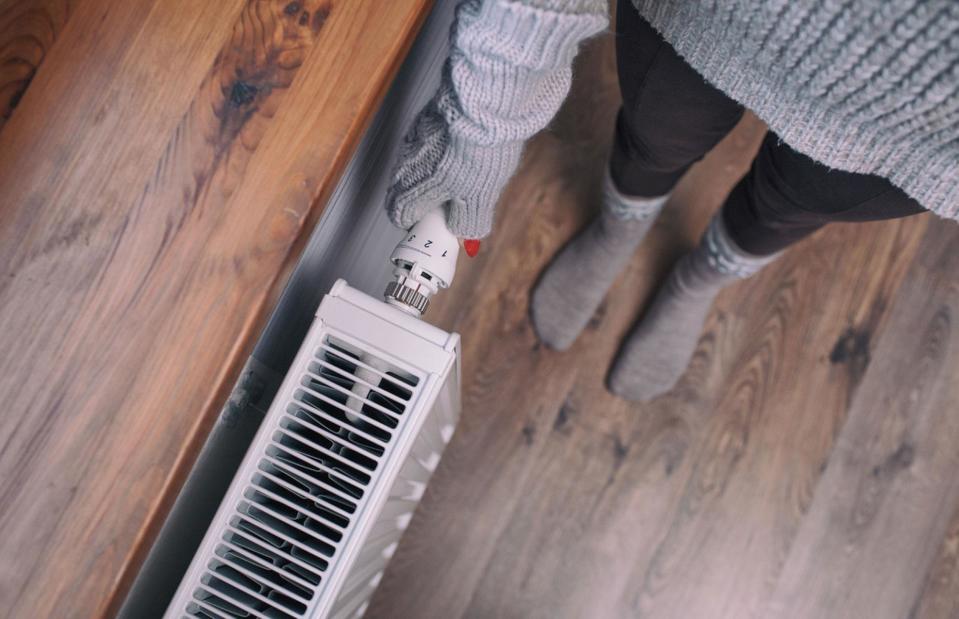
NinaMalyna / Shutterstock
Arguments about the heating all come down to science. Dr Michael Mosley's BBC Radio 4 podcast Cold Therapy concludes that it is a fact that women feel the cold more than men. In his programme, Hannah Pallubinsky, Assistant Professor at Maastricht University, explained that women had some biological differences compared to men and on average men had more muscle mass, producing more heat and keeping them warmer. She said it was, "a very real biological explanation and not just a stereotype".
Meeting in the middle may have other benefits. Dr Mosley's podcast has also found that not only does a lower thermostat temperature save energy but it's good for your health: "So if you want to improve your sugar and fat metabolism, lower your blood pressure and maybe feel a bit brighter you could try turning down the thermostat a bit," Dr Mosley says.
Opening or closing windows
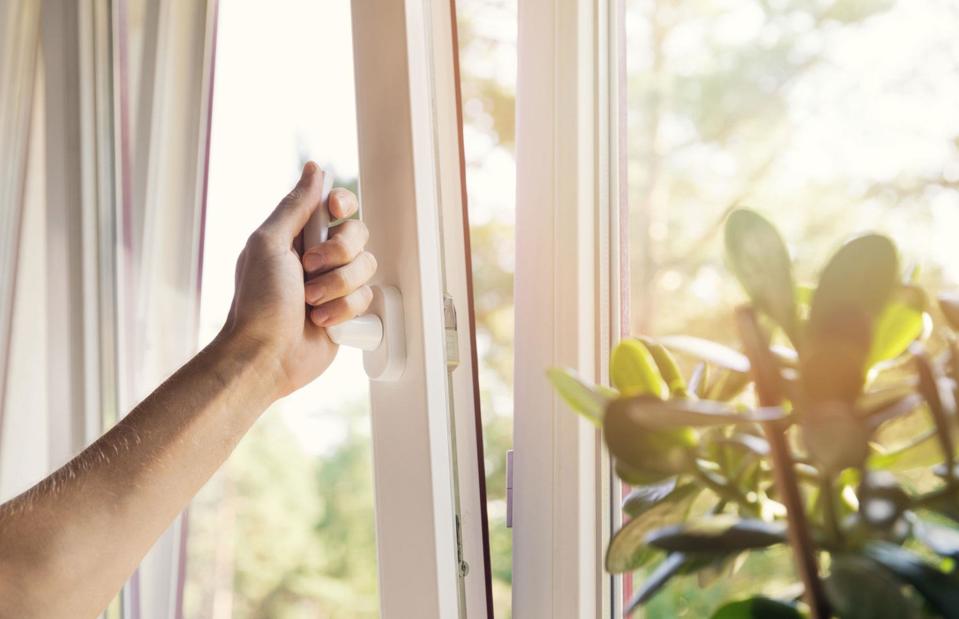
ronstik / Shutterstock
Opening and closing the window is yet another argument that possibly stems from room temperature debates. But there are misconceptions when it comes to knowing when to open windows to improve indoor environments. To settle any arguments it's wise to do your research first.
Opening windows partly during the winter for short periods is vital for air circulation. This helps to eliminate condensation and get rid of mould and damp. But during the summer keep windows shut and curtains closed when it's particularly hot outside to stop hotter air from entering the house.
Teenage bedroom rebellions
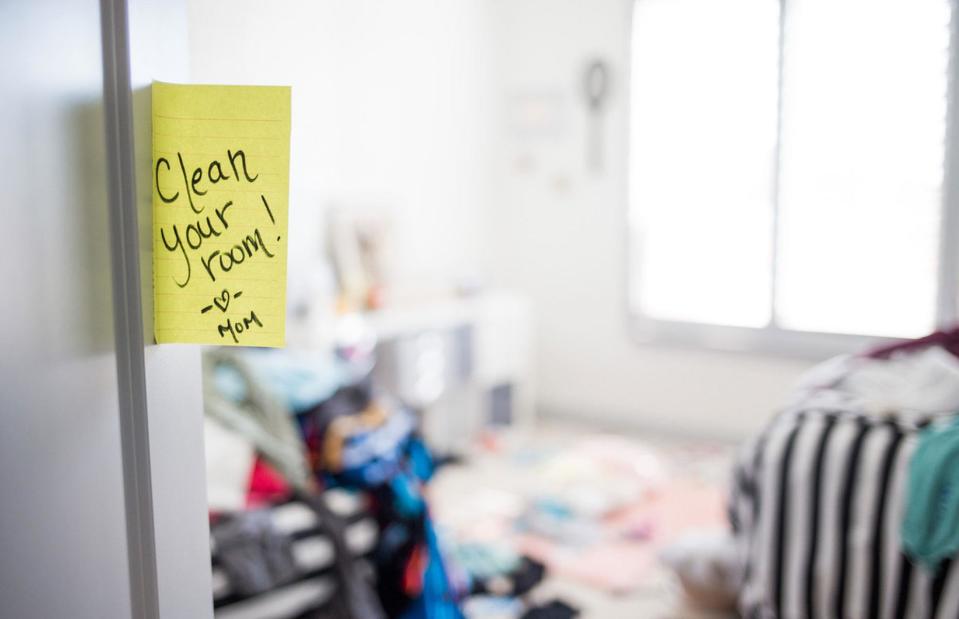
Megan Betterbridge / Shutterstock
Parents will be familiar with the constant battle with children to keep rooms clean and this contest is not new. Teaching youngsters the responsibility of picking up their mess is an essential life lesson can help get over the issue.
Start teaching them from a young age and lead by example. Why not give them tools to help them succeed such as their own laundry basket? Then, create a space they can be proud of by looking at teenage bedroom ideas and get decorating together.
Wet towels on the floor
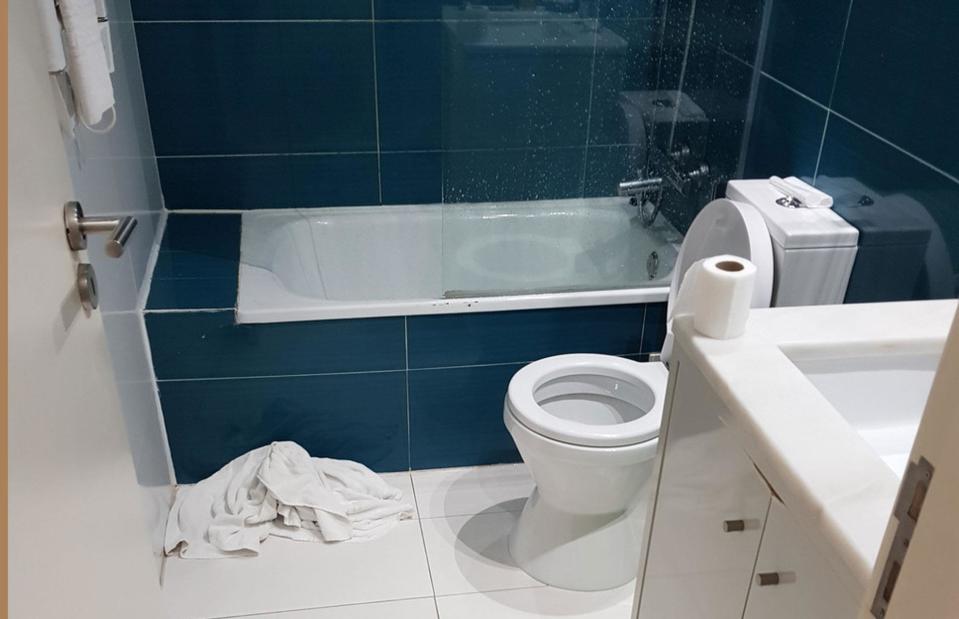
arcticphotoworks / Shutterstock
Leaving wet towels on the floor is another bugbear youngsters of the house may be guilty of. Why not get more cooperation by educating the perpetrator on why it is a health hazard?
If not hung to dry, any water that is absorbed in the towel will leave it moist. This provides the perfect environment for bacteria to multiply and create musty odours and mould. If left on the ground, towels can also create an area of dampness that is welcoming to household pests like silverfish.
Pet etiquette
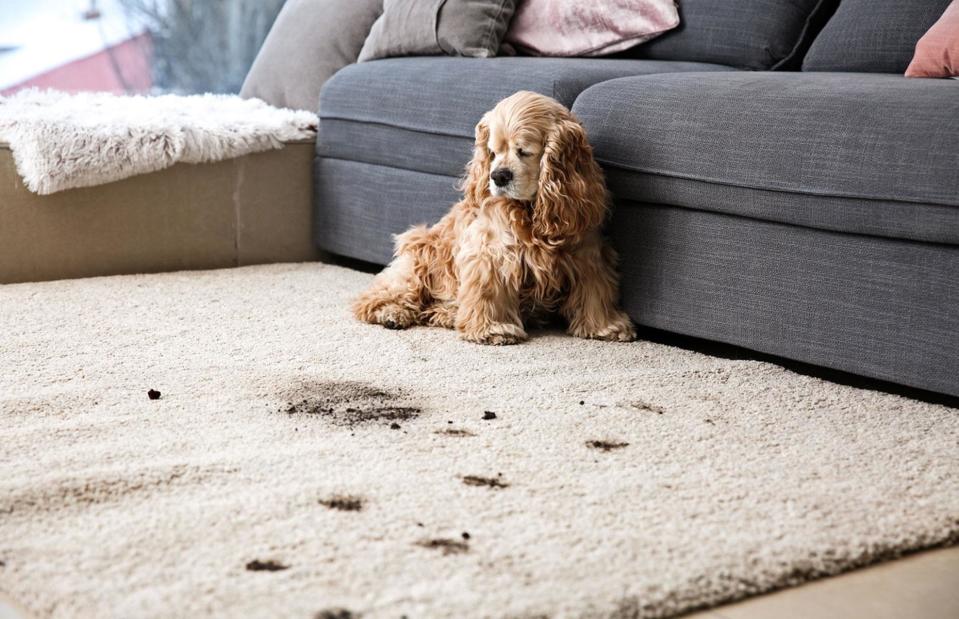
Pixel-Shot / Shutterstock
Pet ownership increased dramatically during the pandemic but not everyone was prepared for the upkeep they need. A spokesperson for NetVoucherCodes explains: "They are cute, funny, and you love them to bits. But sometimes the furry members of a household can cause the most expensive mess." This can then lead to arguments between pet owners.
"Set ground rules before the pet comes home and make sure plenty of effort and training is put in from the start to ensure pets are obedient. Animals tend to have very short memories, so they won't connect their past naughtiness with your current yelling or other punishment, so it is best to take on more of a tactical approach to prevent damage from happening ahead. Finally, share out cleaning, exercise, and feeding duties."
Not wiping worktops
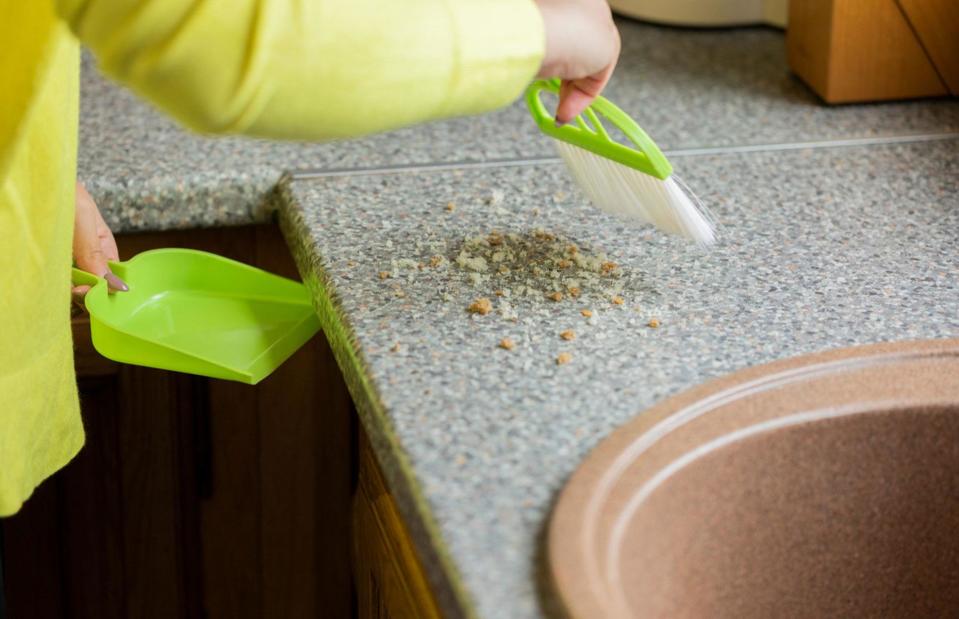
Model Republique / Shutterstock
Busy households will be all too familiar with well-used kitchen worktops, so keeping them clean can and crumb-free can seem like a never-ending task. Clean your house like a professional by sticking to a routine and cleaning as you go. It will soon turn the chore into a habit.
Top tip: keep chopping boards close by that are easy to wipe. This will also protect your worktops from becoming scratched.
Not doing laundry
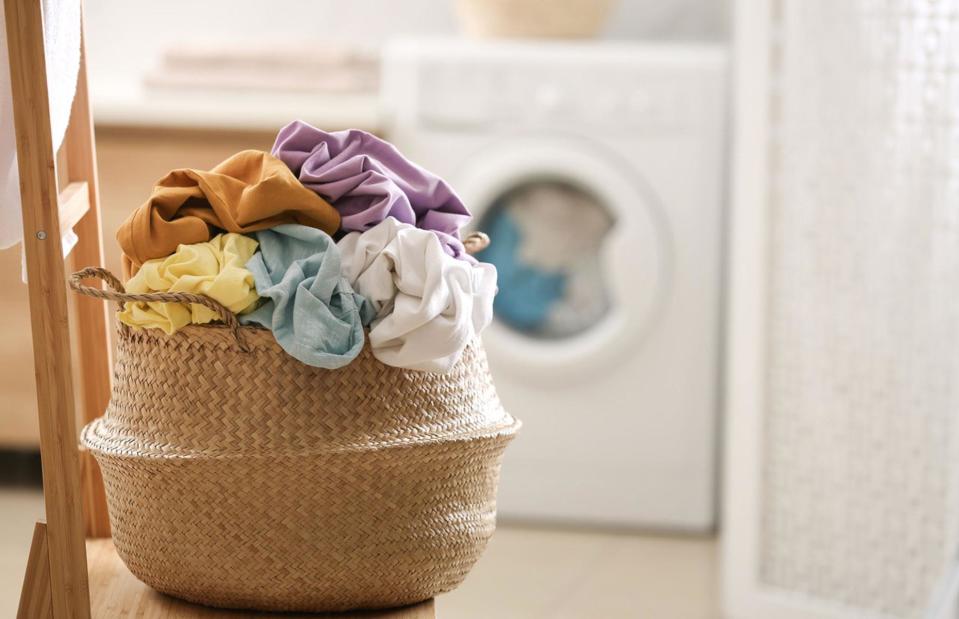
New Africa / Shutterstock
Arguments over laundry can cause heated debates. Garment pile-ups, clothes being ruined in cycles, and ironing are all part of the problem.
If the laundry is a dirty word in your household, help lighten the load by thinking of laundry hacks that save time and money. These can include popping a laundry basket in everyone's bedrooms and ensuring people put away their own clean laundry often. Plus make regular household chores fair. For instance, if one does the laundry the other takes charge of the rubbish.
Not putting laundry away
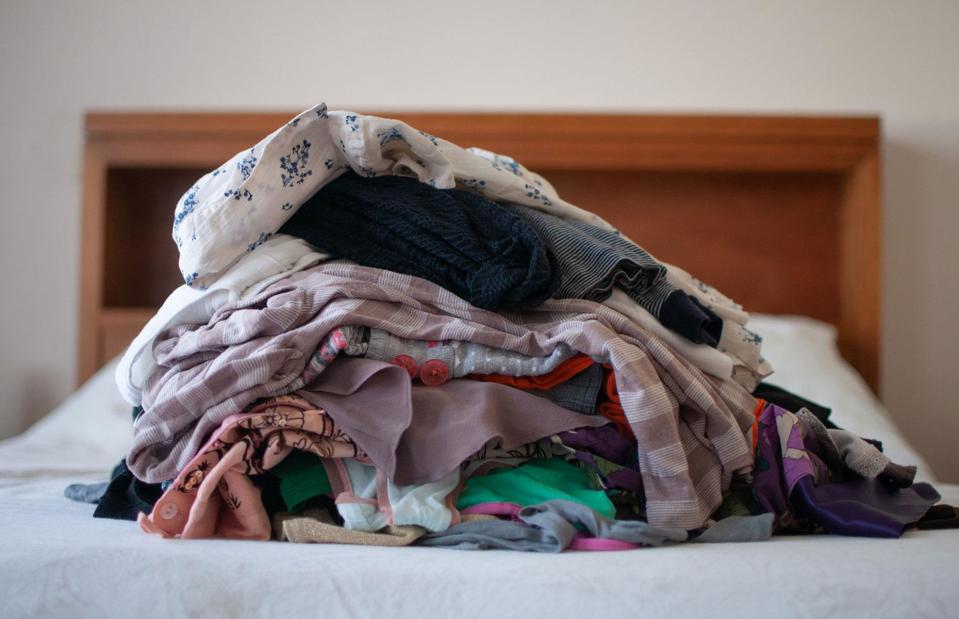
AmyHolton / Shutterstock
Another frustrating problem when it comes to laundry is knowing whose duty it is to put clean clothes away. Seeing clothes that you may have washed, ironed and folded still sitting on a chair or, worse, back on the floor is enough to make anyone hostile. For life with less laundry mess, ensure clean laundry is put away straight away.
Teach from an early age, with low cubbyholes and drawers that are easy to reach. Sticking photos of garments on dedicated drawers could be fun. For older household members, make them do a whole laundry load to make them realise there is not a laundry fairy in the house and household chores should be shared.
Overloading the washing machine
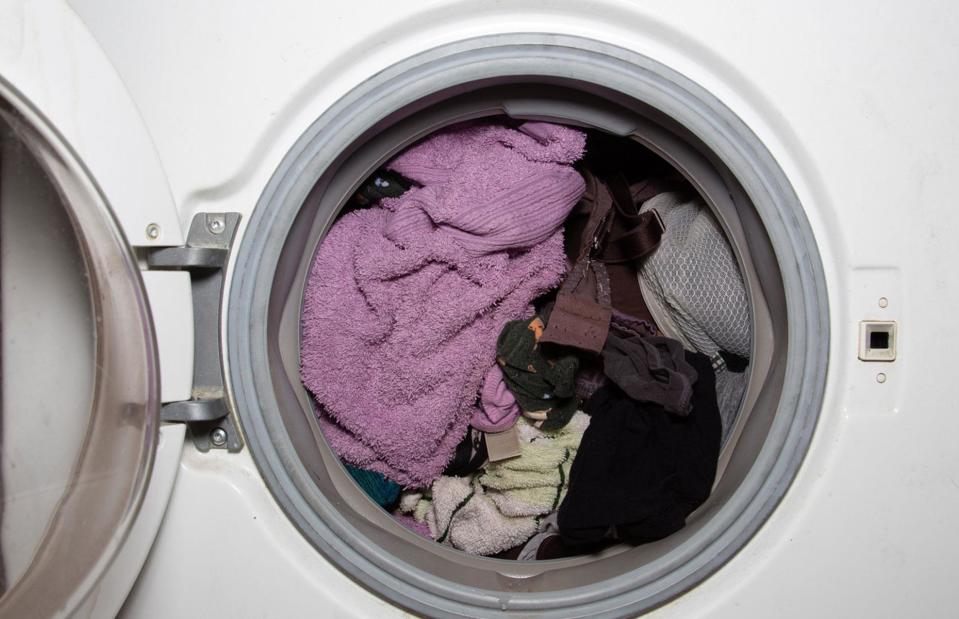
Travis182 / Shutterstock
As with overloading the dishwasher, cramming a washing machine drum until there is no space at all will hinder the cycle. Then leaving the washing in the drum for hours after it's finished will simply allow bacteria and musty odours to form.
Encourage laundry to be completed efficiently and productively by explaining mishaps. Olivia Young from Astonish explains. "Cramming too much into your machine will cause clothes to clump together, creating that hardened, tough feeling. Instead, go for a medium load."
Not washing up

New Africa / Shutterstock
Whether you are partners, roommates or family members, frustration over washing-up duties is all too familiar. But, ultimately, washing up after cooking and consuming food is an essential part of living so a settlement must be made.
Perhaps this important and essential chore deserves a house meeting where a rota can be drawn up. Plus, without being patronising, remind people of the washing up rules (as per Good Housekeeping Institute) which are: "In hot, soapy water, follow this routine: 1. glasses, 2. mugs, 3. saucers, 4. side plates, 5. dinner plates, 6. cutlery, 7. serving dishes, 8. pans, 9. roasting tins."
Shoe pile-ups
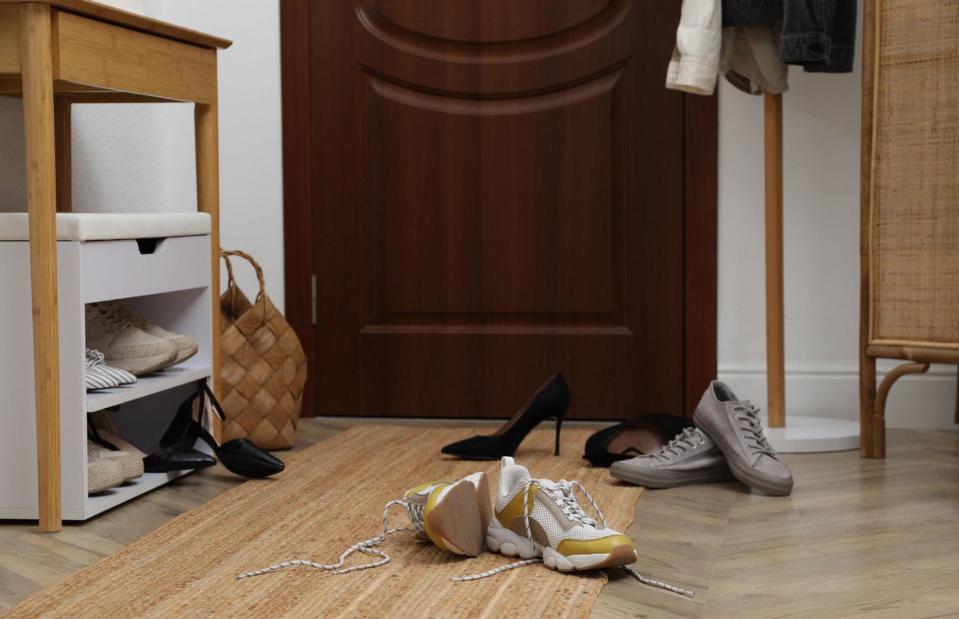
New Africa / Shutterstock
No matter how many feet live in a house, footwear strewn about a hallway or boot room is problematic. Reasons for irritation include trip hazards, clutter and bad odours.
Good hallway storage could be the answer to all your shoe wars. Stylish shoe storage makes a practical and welcome addition to make hallways clean and clutter-free. Why not dedicate storage for family members? Little ones will find it fun and older fellows will no longer have any excuses.
Forgetting door keys
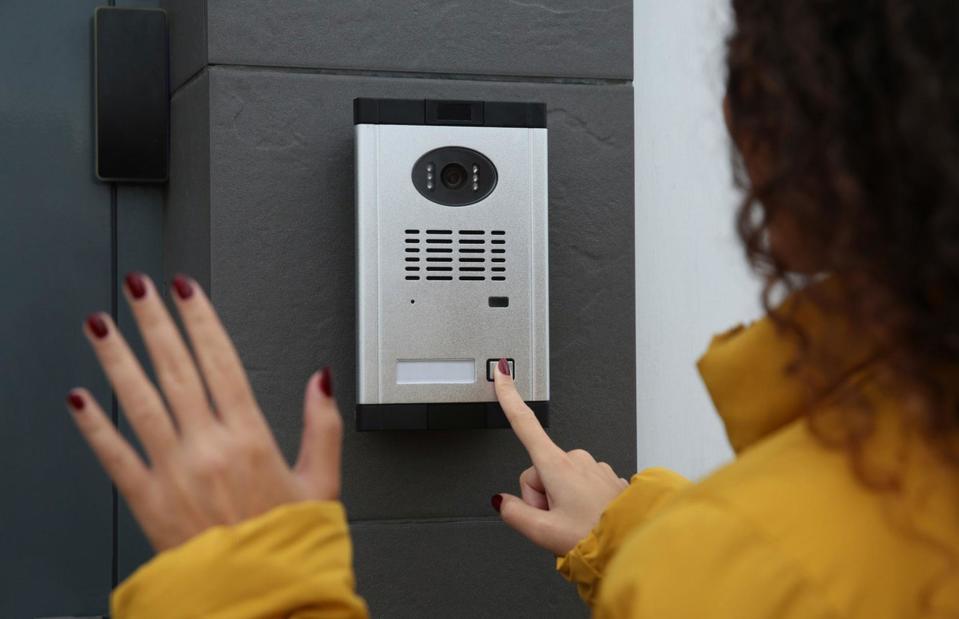
New Africa / Shutterstock
Picture the scene: you've just sunk into a steaming hot bath to relax and the doorbell rings... and rings... and rings. Only a member of the household would ring the doorbell that many times to be let back into the house.
Ensure everyone remembers their door keys by cutting a set for each person and placing it on a keyring. Pop a key station somewhere close (but a safe distance away) from the front door. Or, if there are some very absent-minded people in your house, a secret, mounted key safe outside may bring harmony back to the home.
Lighting woes
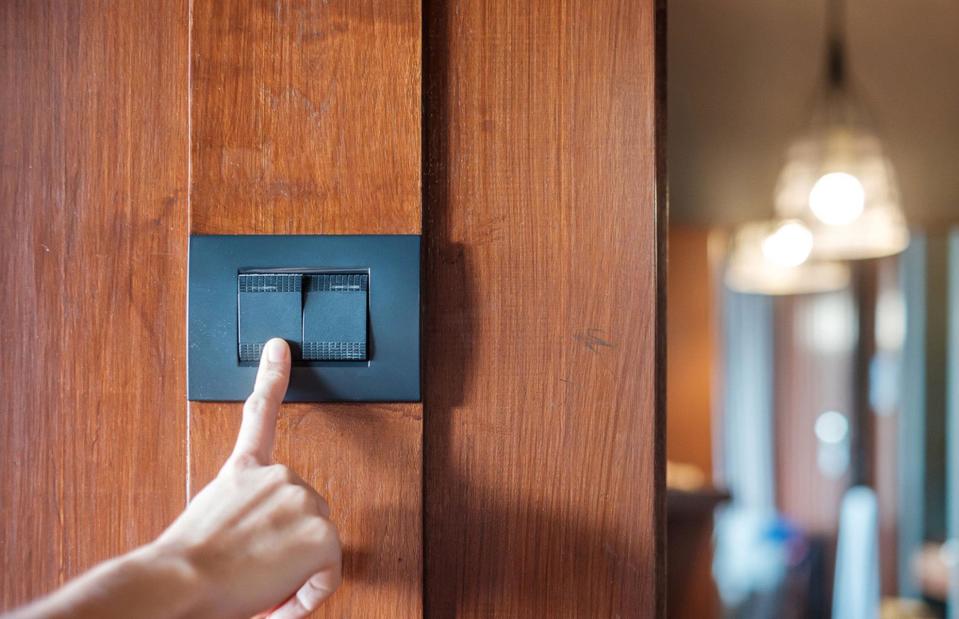
Jo Panuwat D / Shutterstock
With the cost of living still high, we are always looking for ways to cut down on our energy bills. If lights are continuously left on when no one is in a room for instance, tensions can flare.
Ensure your lights are fitted with energy-saving lightbulbs and explain to the main offenders why having so many lights on is a waste of energy and money. If it's still causing issues, why not invest in a sensor light for main traffic areas, or battery-powered, low-lighting when a room is not in use?
Not cleaning the shower screen
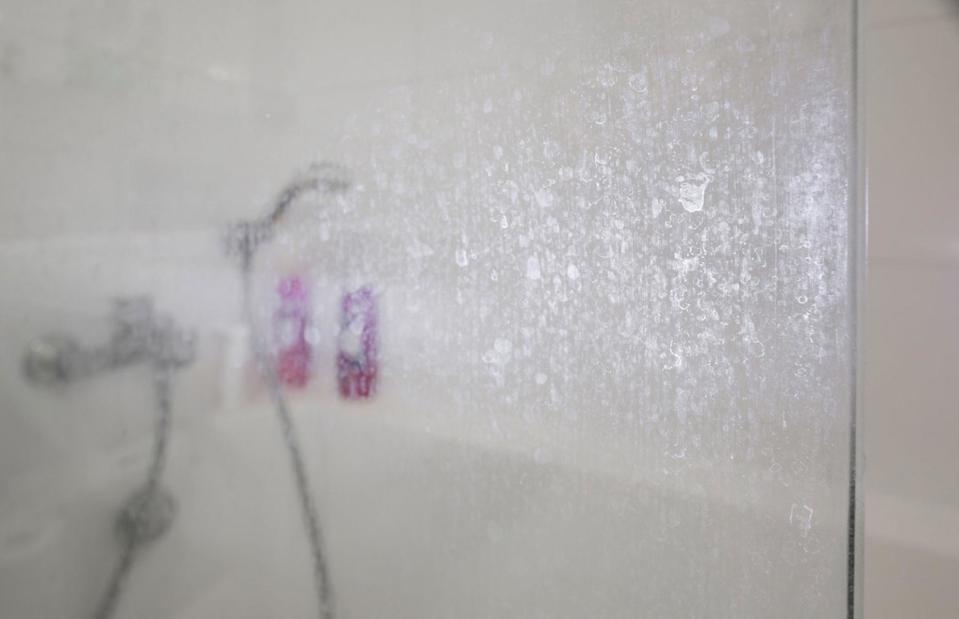
Losonsky / Shutterstock
A dirty shower screen instantly makes a bathroom look lacklustre and unclean. Unfortunately, hard water droplets build up every time someone has a shower.
Keep a cleaning squeegee with a suction pad in the shower and ask house members to wipe it down every time they finish showering. Removing the excess water will also help condensation and mould build up in the moist environment.


